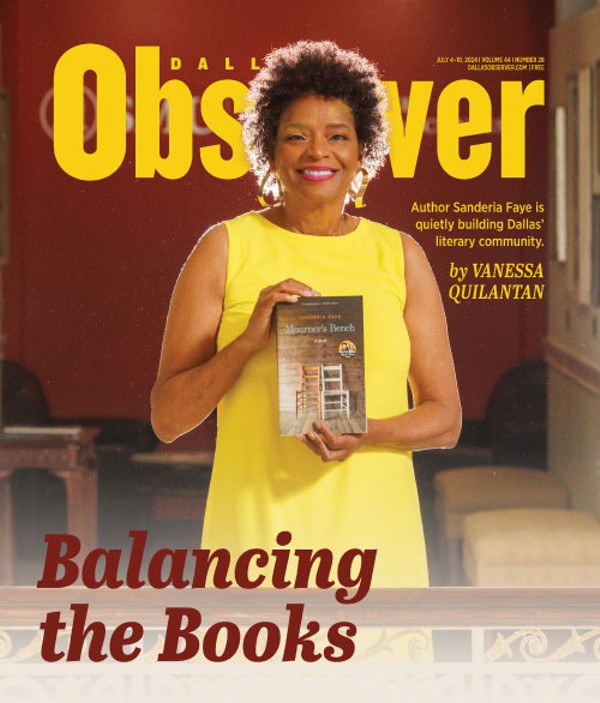But two homeless people, a community organizer and a college professor sued the city over the ordinance in December claiming it violated their First Amendment right to free speech.
The law firm Waters Kraus & Paul, the Southern Methodist University (SMU) First Amendment Law Clinic and the Texas Civil Rights Project are representing the plaintiffs in the suit. They went to federal court on Thursday to try to get Honorable Magistrate Judge Renee Harris Toliver to halt enforcement of the ordinance until there’s a ruling on its constitutionality.
Alton Waggoner and Teri Heishman are the two homeless people in the suit. They say they stand on medians that are narrower than 6 feet to panhandle. The U.S. Supreme Court has ruled that panhandling is considered protected speech under the First Amendment. Waggoner and Heishman claim in the suit that the ordinance violates this protected speech.
Kawana Scott, another plaintiff in the suit, is a community organizer and chair of the DFW Alliance Against Racist and Political Repression. She claims the ordinance could interfere with her activism work in Dallas, which can involve organizing protests where people may stand or walk on medians narrower than 6 feet.
Hannah Lebovits, assistant professor of public affairs and planning at the University of Texas at Arlington, is another plaintiff in the suit. Lebovits conducts research on the homeless in Dallas and tries to help them whenever she can, which often brings her to places affected by the ordinance.
Waggoner, a 68-year-old veteran, and Scott both testified during the hearing on Thursday.
In court that day, the plaintiffs' lawyers argued that the ordinance is an attempt to criminalize panhandling, not a tool to improve pedestrian safety. They said enforcement of the ordinance should be halted because of the harm it could do and that beyond the requested injunction, their ultimate victory against the ordinance is likely, citing a similar ordinance that was struck down in Oklahoma. The city doesn’t comment on pending litigation but argued in court Thursday that the ordinance was in fact a pedestrian safety measure.
Travis Fife, a legal fellow with the criminal injustice program at the Texas Civil Rights Project, told the Observer the court asked to have everyone back on April 27, and to submit additional arguments by May 1.“We have plenty of evidence to show that this is not a smart move for the city of Dallas." – Adam Bazaldua, Dallas City Council
tweet this
The city objected to certain evidence being admitted into the case but the court overruled this objection Thursday. Now, notes and video from the last two years of public meetings about the ordinance and its intent will be considered in the case. This evidence, as well as video of City Council member Adam Bazaldua stating that the ordinance was crafted because of concerns over homelessness and panhandling, are proof that it wasn’t really about pedestrian safety, according to the suit. Bazaldua is the only City Council member who voted against the ordinance.
“We have plenty of evidence to show that this is not a smart move for the city of Dallas,” Bazaldua said ahead of the City Council’s vote last Oct. 26. “This is a bad position to put the taxpayers in because we will end up being in a bad position to defend this.”
He added: “We should not be doing this as a city. This is not fiscally responsible and this is not solving for any problem. Again, I’m not going to support criminalizing poverty and homelessness.”
The suit mentions multiple city committee meetings where the ordinance was discussed as a means to deter panhandling. But even the city’s stated intent behind the ordinance – pedestrian safety – isn’t supported by the facts, Fife said.
“I want to be clear,” Fife said. “The record goes beyond just the intent of legislators [City Council]. It also goes to official city documents that paint this as an ordinance designed to curb panhandling.”
During meetings on the ordinance prior to passage, Dallas Police Department Chief Eddie Garcia and Ghassan "Gus" Khankarli, the director of the city’s transportation department, both shared statistics on 2022 pedestrian fatalities. But neither could provide an example of someone being hurt by sitting or standing on a median 6 feet or narrower, according to the suit.
Fife said he’s hoping there will be a ruling on the injunction to halt the enforcement of the ordinance before the summer. He said he’s not sure when the overall case will reach its conclusion but he’s optimistic that the city’s ordinance will be overturned.
"We look forward to a rigorous and thoughtful opinion whenever it comes out," he said.












